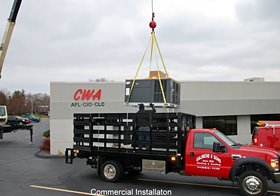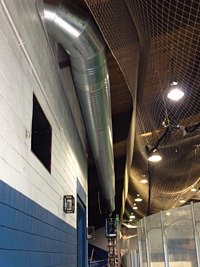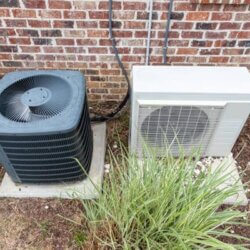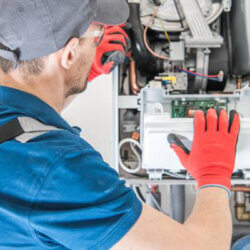
It is common knowledge that allergens such as dust, pollen, and bacteria are the prime causes of respiratory disease and other complications associated with poor quality or contaminated air. One way to keep these allergens in check is by having and maintaining a high-quality HVAC system that will filter out the allergens. Servicing your HVAC system and replacing home air filters regularly will help ensure that you breathe healthy air at all times.
Home air filters should be changed at least every two or three months. Unfortunately, most of us are normally too busy and we seldom remember changing the air filters. However, with some helpful air filter replacement tips, you can remember this important task.
To learn more or to schedule heating & air conditioning cleaning and maintenance service for all your St. Louis HVAC systems, contact us online or by phone today.
Why You Should Change Your Home Air Filter Regularly
The first reason why you should change your home air filter is to keep your heating and air conditioning system in working order. We normally tend to forget that a clogged or ruptured home air filter will negatively affect the overall performance of the entire HVAC system. A clogged air filter will have the following effects:
- HVAC system failure
- Increased energy consumption
- Increased carbon footprint
- Reduced home air quality
- Released dirt and dust into the ventilation ducts and the HVAC system
Effects of Dirty Air Filters

Additionally, a number of health issues can arise from using dirty home air filters that have not been replaced for a prolonged period of time. Issues can include:
- Respiratory issues – The respiratory system is directly affected by the air that we breathe. People with respiratory complications will be the most affected when home air filters are clogged or dirty. This is because allergens get trapped indoors and trigger pulmonary conditions such as asthma, coughing, wheezing and sore throat.
- An introduction of new diseases due to long exposure – When people stay in allergen-rich environments for long periods, new diseases such as asthma and other respiratory complications can arise. In this case, children are the most vulnerable and they can easily develop respiratory complications due to poor indoor air quality.
- Mold infestation – Mold spores may be invisible to the naked eye, but an accumulation of these spores can lead to infestation, which is harmful to be exposed to.
- Bacterial infections – When home air filters are blocked, there are many animal and insect particles that get trapped in the ducts and start decomposing. This provides a good culture for bacteria to grow and spread, and can easily lead to serious bacterial infections.
How to Change Your Home Air Filter
The frequency with which home air filters should be changed depends on the specifications of the HVAC system and environmental factors in your home, but on average they should be changed anywhere from every three months to as often as once a month. The grade and type of home air filter to be installed will also depend on the specific HVAC system. You can contact the heating & air conditioning experts at Galmiche & Sons in St. Louis to learn more about replacing your air filter and maintaining your HVAC system for optimal indoor air quality.









